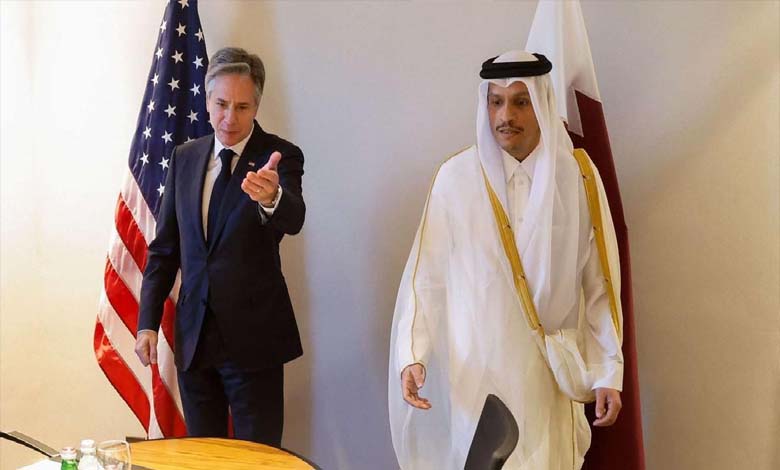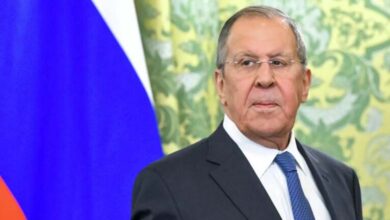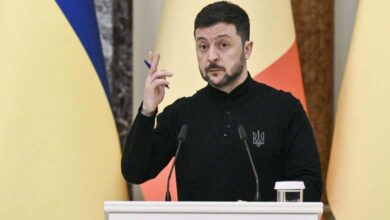Qatari Mediator’s Withdrawal Does Not Affect U.S. Efforts for a Gaza Ceasefire
The U.S. State Department confirms it continues to monitor several initiatives to ensure the release of hostages and to end the war.

The United States reaffirmed on Tuesday that it still hopes to reach a ceasefire agreement in the Gaza Strip, despite Qatar’s announcement to suspend its mediation between Israel and Hamas. However, an agreement now seems unlikely before the current U.S. President Joe Biden leaves office in about two months.
-
What is the Truth behind Qatar’s Approval to Expel Hamas from its Territory?
-
Iran as a potential haven for the Muslim Brotherhood if they leave Qatar.. How?
State Department spokesperson Vedant Patel stated, “We continue to monitor several initiatives to ensure the release of hostages. This work continues. We have not lost hope.” He added, “It is crucial for us to reach an agreement as quickly as possible, particularly to bring the remaining hostages back to their families.”
Qatar announced on Saturday that it had suspended its mediation between Israel and Hamas, further diminishing already low hopes of reviving discussions aimed at ending the year-long war in the Palestinian territory.
-
Resumption of Truce Negotiations: New American Efforts with Egypt and Qatar to Stop the Gaza War
-
The handshake between the Emir of Qatar and the Israeli President stirs controversy on social media… Details
The mediation led by Qatar, Egypt, and the United States had resulted in a week-long truce in late November, during which Israeli hostages held in Gaza and Palestinian prisoners in Israeli prisons were released. However, efforts failed to achieve any significant breakthroughs in the following months.
Qatar announced that it had informed the concerned parties “that it would suspend its mediation efforts… and that it would resume these efforts with its partners when the necessary commitment to ending the brutal war is in place.”
-
Netanyahu assures Qatar of not assassinating Hamas leaders in Doha… Details
-
Belgium drops pursuit of Qatari minister in Qatargate scandal swap deal
Doha, which maintains close relations with the United States and hosts the political office of the Palestinian movement, has played a central role in mediation since the start of the war on October 7, 2023, following an attack by Hamas in southern Israel.
In a statement on Saturday, Qatari Foreign Ministry spokesperson Majed Ansari described as “inaccurate” the media reports regarding Doha’s intention to close the movement’s office. He explained that “the primary purpose of the office’s presence in Qatar is to serve as a communication channel between the concerned parties. This channel has achieved ceasefires at several stages in the past and contributed to maintaining the truce up until the exchange of hostages and prisoners, including women and children, in November last year.”
-
Is Qatar closing Hamas office? And where have negotiations for the release of prisoners reached?
-
American-Qatari agreement puts the fate of Hamas and its leaders in Doha at stake
A diplomatic source reported that “the Qataris informed the Israelis and Hamas that, as long as there is a refusal to negotiate a good faith agreement, they would be unable to continue mediation. As a result, Hamas‘ political office no longer serves its purpose.”
The Hamas office was opened in Doha with the implicit approval of the United States and Israel to provide a means of communication with the movement and to distance it from Iran.
-
Turkey and Qatar… Negotiations for the release of Israeli prisoners
-
Will the World Cup protect Qatar from terrorism financing charges?
Regarding Hamas‘ office, Patel said, “We have been very clear… with countries around the world that matters with Hamas certainly cannot continue as they have,” indicating that pressure had been exerted on Doha to adjust its handling of the Palestinian movement.
Palestinians view with concern the potential impact of Republican leader Donald Trump’s return to the U.S. presidency due to his pro-Israel stance and personal ties with Israeli Prime Minister Benjamin Netanyahu. Although Trump has pledged to work to stop the war in Gaza and release the hostages, this will depend on exerting enough pressure on Israel.












